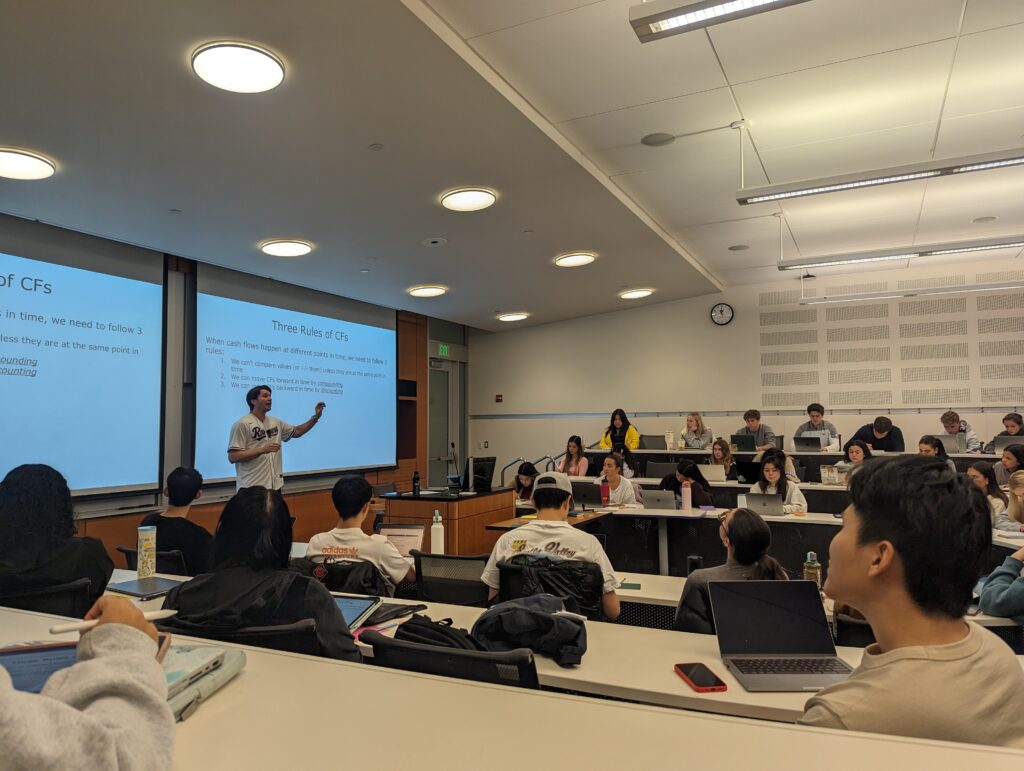Foster Finance Faculty Spotlight – Jordan Nickerson
Get to know Jordan Nickerson, Assistant Professor of Finance and Evert McCabe Endowed Fellow in Private Enterprise at the University of Washington’s Foster School of Business. He teaches the elective course titled Problems in Capital Investment Planning.

Please tell us a bit about your background.
I’m a native son of Texas, raised in a small farming community outside of Dallas. Given that, it was only natural to go to the University of Texas. After getting my BS in mathematics I stayed in Texas, finishing my PhD in Finance five years later. I’d like to think that I have held on to some small-town qualities. I’m a big sports guy, and like to stay active (which since moving to the PNW has meant getting into things like hiking).
What excites you about your subject area and what are some of your research interests?
My research is pretty evenly split between two areas: credit ratings/structured finance products & household finance. If you’re not sure exactly what the first is, think of the movie ‘The Big Short’. The second is all about understanding how individuals make financial decisions (e.g., refinancing your mortgage). I chose these areas for two reasons. First, I think they have an ability to impact people’s lives. As an example, I’ve been asked to consult with government agencies given my research in structured finance products. Second, I want to do research that someone like my parents (who don’t have a formal background in finance) can relate to.
Which factors influenced your decision to join UW Foster?
Far and away the biggest factor in choosing UW was the department’s research reputation (both in terms of research rankings, as well as general perception from the research community).
What do you find meaningful about your time thus far at Foster?
The thing that I’ve valued most from my time at UW is the sense of cohesion/community among the finance faculty. This was the biggest unknown prior to moving to UW, but one of the things I’ve appreciated most about the group.
How have you worked to make your classroom/course curriculum inclusive?
While the course content is quite broad, I have more control over the classroom. I want to hear from all students when it comes to class discussion, regardless of background, views, etc.

How is your teaching influenced by instructional best practices?
I’ve been fortunate to have some incredible instructional teachers as colleagues in the past, and have constantly strived to incorporate small aspects of their approach into my teaching philosophy. I take the view that my class should be an ever-evolving entity, constantly being tweaked in response to student feedback.
How do you maximize learning and keep students engaged?
IMO, this is the most challenging aspect of teaching. Student engagement and learning don’t always go hand in hand. Ultimately, I’ve settled on a class that is a healthy mix of lecture and case discussions.
Are you currently doing work outside of Foster that influences what happens in the classroom?
While I’m currently engaged in outside activities that are helping shape policy, they tend to be more specialized/focused relative to what gets covered in my corporate finance class.
How will students apply the knowledge and skills they gain in your classroom in their careers?
My goal isn’t for students to come away from my class with a set of excel templates. Instead, I want students to come away with a new lens through which they can view corporate finance decisions. If they can do that, they’ll be able to 1) understand all the moving parts of any spreadsheet they run across in their career, but more importantly 2) be able to improvise and capture the first order drivers of value if tasked to evaluate something totally out of their wheelhouse.
What advice do you have for students to ace your course?
My class is an upper division elective, meaning it builds on previous material. Don’t be afraid to raise your hand if there is something that you’ve forgotten since the intro class. That, and participate in the class discussions.
